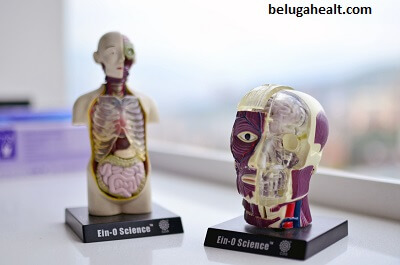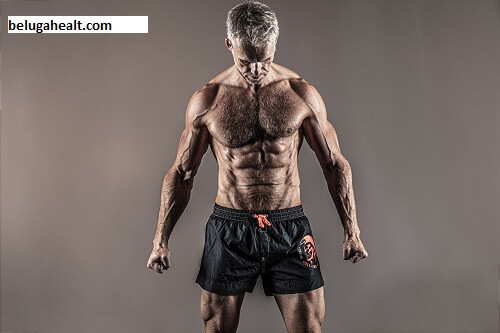Body & Health

Body&Health:
Understanding Body and Health:
The basis of a happy life is health. It is complexly designed in the way a human’s body requires balance through nutrition, regular exercise, mental wellness, and resting adequately. In this article, we will explain the body and its components, show why they are important, and give tips on obtaining optimal well-being. To that effect, we also address some frequently asked questions that often present common questions.

Body & Health Components:
- Nutrition: Nutrition is the foundation of health. The diet directly impacts body functions, energy levels, and general well-being. A healthy diet has various elements:
- Carbohydrates: Serve as an energy supplier. Such food items include fruits, vegetables, grains, and legumes.
- Proteins are crucial for growth and body repair. They are found in meat, dairy, nuts, and beans.
- Fats: Necessary for brain functioning and hormone production. Fats include avocados, olive oil, and fish.
- Vitamins and Minerals: Needed for a host of other bodily functions. These micronutrients are abundant in fruits, vegetables, and whole foods.
1. Practical Tips for Balanced Nutrition:
Incorporate a rainbow of fruits and vegetables in your meals.
Whole grains over refined grains
Opt for lean proteins and limit your consumption of processed meats.
Hydrate sufficiently throughout the day.
2. Physical Activity:
Physical activity is necessary for maintaining physical. It controls weight, builds muscles and bones, and enhances cardiovascular health. The CDC recommends at least 150 minutes of moderate aerobic activity per week.
Types of Exercise:
- Aerobic Exercise: Activities such as walking, running, cycling, and swimming that increase heart rate.
- Strength Training: Exercises such as weightlifting that build muscle.
- Flexibility and Balance: Yoga and stretching to enhance flexibility and reduce injury risk.
Practical Tips for Being Active:
Identify an activity that you enjoy and that makes exercise fun.
Do some form of movement in the day, like taking the stairs or walking when on break.
Set fitness goals and keep track of how you’re doing.
3. Mental Health:
Mental health involves emotional, psychological, and social well-being. When mental goes wrong, it impairs the way we think, feel, and behave; hence we have problems like anxiety and depression.
Strategies for Mental Well-being:
- Mindfulness and Meditation: Activities that help one to be relaxed and focused.
- Social Networks: Building and maintaining networks for support.
- Professional Services: Seeking therapy or counseling when needed.
Practical Tips for Mental Health:
- Take time to rest and avoid burning out.
- Engage in hobbies and activities that create joy.
- Practice gratitude by reflecting on good experiences.
4. Sleep:
Sleep is a very important part of staying healthy. It heals the body, makes “memories stick,” and regulates the hormones in your body. Most adults need 7-9 hours of quality sleep at night.
Tips for Better Sleep:
- Go to bed at the same time each night, so your body gets used to this pattern.
- Create a pre-sleep routine for winding down.
- Regular check-ups and screenings can then detect problems early.
- Preventive care can check on and control the risk factors and long-term health of an individual.
Key Preventive Practices:
- Routine physical check-ups and screenings for diabetes, hypertension, and cancer.
- Immunizations against diseases that are preventable.
- Tracking and controlling chronic conditions through their health care providers.

The Importance of Holistic Health:
Holistic describes the combination of the mind, body, and spirit. This is an understanding of the reality that physically may be affected emotionally and mentally. A holistic approach to life may lead to a better-balanced and fulfilling life. In this article, we will explain the body and its components, show why they are important, and give tips on how one can obtain optimal well-being. To that effect, we also address some frequently asked questions that often present common questions.
Essential Components of Holistic Health:
- Integration of Care: Incorporation of traditional care and alternate healing (such as acupuncture, herbal remedies, etc).
- Lifestyle Changes: Diet, exercise, and mental as interconnected aspects of health.
- Self-Care: Doing things that bring a smile and relaxation to oneself to maintain personal well-being.
Frequently Asked Questions (FAQs)
1. How to Begin Eating Healthier?
Start by making small changes. Introduce fruits and vegetables to the foods you eat, take whole grain over refined, and taper on sugary drinks and snacks as much as possible. This will also prepare the meal for the whole week.
2. How Much Do I Need to Exercise?
At least 150 minutes of moderate-intensity aerobic activity per week, combined with muscle-strengthening activities at least twice a week, is an absolute necessity. The activity should be enjoyable for your body too.
3. How will you effectively manage stress?
Mindfulness techniques such as meditation or yoga help reduce the level of stress in a person. Regular exercise, sleep, and hobbies also reduce levels of stress.
4. How can I sleep better?
Several ways to improve sleep quality: keeping a regular sleep schedule, a soothing bedtime routine, and not engaging in screen time before bedtime. Another would be to practice relaxation techniques such as deep breathing or gentle stretching.
5. What should I do if I am experiencing a mental health problem?
It is essential to seek help. You can consider consulting a mental expert to guide you on ways of coping. Sometimes, talking to friends or family members can be helpful.
6. Why is preventive health important?
Prevention enables one to detect diseases early before they get worse. Early intervention is made possible through prevention. It also leads to better outcomes, reduced care costs, and a longer and healthier life.
7. How can you keep motivated toward healthy habits?
You should have easy, reachable goals to acknowledge your achievements and work steadily toward the set target. This often involves finding a workout mate or participating in a network that makes you more conscious of and accountable for the set goals. It’s less about trying to achieve complete perfection but about changing permanently in the best possible way.
Conclusion:
Knowing how the body and are connected means an end to achieving a living life. The main activities that ensure getting there are proper nutrition, physical activity, mental, sleep, and preventive care. Approach health holistically because all these elements in life are intertwined. Remember, little change consistently leads to massive differences in your time. Take care of yourself today and welcome a tomorrow.

